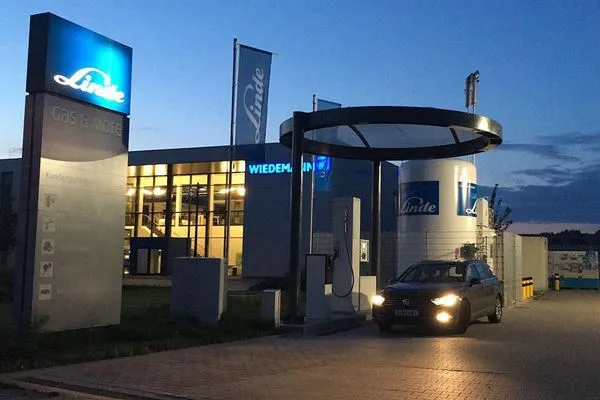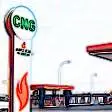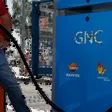
Hydrogen price in Germany

Average Hydrogen Price in Germany
The average price of hydrogen in Germany this month is:
Hydrogen Price Table in Germany
| SUPPLIER | CITY | PRICE |
|---|---|---|
| Shell | Aachen | 19,25 |
| Total Energies | Magdeburg | 17,75 |
| Shell | Berlin | 15,05 |
| Total Energies | Berlin Charlottenburg | 18,25 |
| Shell | Bremen | 19,25 |
| Shell | Essen | 18,25 |
| APEX Group | Laage | NA |
| Kamen | Kamen | NA |
| Total Energies | Dresden | 13 |
| Total Energies | Duisburg | 18,25 |
| H2 Mobility | Düsseldorf | 17,75 |
| Total Energies | Erfurt | NA |
| Shell | Frankfurt | 18,25 |
| TotalEnergies | Freiburg | 19,25 |
| Shell | Hamburg | 18,25 |
| Shell | Hannover | 19,25 |
| OMV | Heidelberg | 18,25 |
| Total Energies | Bad Rappenau | 19,25 |
| Total Energies | Karlsruhe | 19,25 |
| Total Energies | Köln | 18,25 |
| Total Energies | Leipzig | NA |
| ALLGUTH | München | 18,25 |
| OMV | Nürnberg | NA |
| H2 Mobility | Ulm | 19,25 |
| OMV | Echterdingen | NA |
| For more hydrogen stations click below on the list or the map. |
Map of Hydrogen Stations in Germany
List of Hydrogen Stations in Germany
Hydrogen prices in Germany at each point of sale
Learn about the evolution of hydrogen prices in Germany, the most competitive operators and the outlook for the future.
Historical Development of Hydrogen Prices in Germany
Hydrogen has become a key pillar in the energy transition, and Germany is a leader in its adoption. Over the past two decades, the country has developed a robust network of fueling stations offering hydrogen as an alternative fuel.
Since the early 2000s, the price of hydrogen has seen significant variations. In 2005, hydrogen cost around 10 euros per kilogram due to a lack of infrastructure and high production costs. This price remained the same until 2010, when new technologies allowed for the expansion of infrastructure.
In the 2010s, prices began to decline. In 2015, the average price was 9 euros per kilogram, driven by technological advances and increased demand.
Hydrogen production price in Germany today
In recent years, prices have continued to decline, albeit at a slower pace. By 2020, the average price was 8 euros per kilogram. However, the COVID-19 pandemic caused temporary fluctuations in prices.
In 2022, the average price dropped to 7.5 euros per kilogram, thanks to investments in green hydrogen and the expansion of the production network. In 2024, the price stabilized at around 7 euros per kilogram.
Prospects for the Coming Years
Hydrogen prices are expected to continue to decline, albeit more moderately. European and German initiatives in green hydrogen could further reduce production costs, and market competition could push prices to between 5 and 6 euros per kilogram by 2030.
The massive adoption of hydrogen vehicles and technological advances will be decisive in the evolution of prices in the coming years.
Operators with the Most Competitive Prices
In Germany, the most competitively priced operators include H2 Mobility, Linde and Shell. H2 Mobility has managed to reduce prices through strategic alliances, while Shell and Linde leverage their infrastructure and experience to offer attractive prices.
References
- https://www.h2-mobility.de/
- https://www.shell.com/energy-and-innovation/hydrogen.html
- https://www.linde.com/what-we-do/hydrogen
- https://www.bmwi.de/Redaktion/EN/Dossier/hydrogen-strategy.html
- https://www.iea.org/reports/global-hydrogen-review-2023






